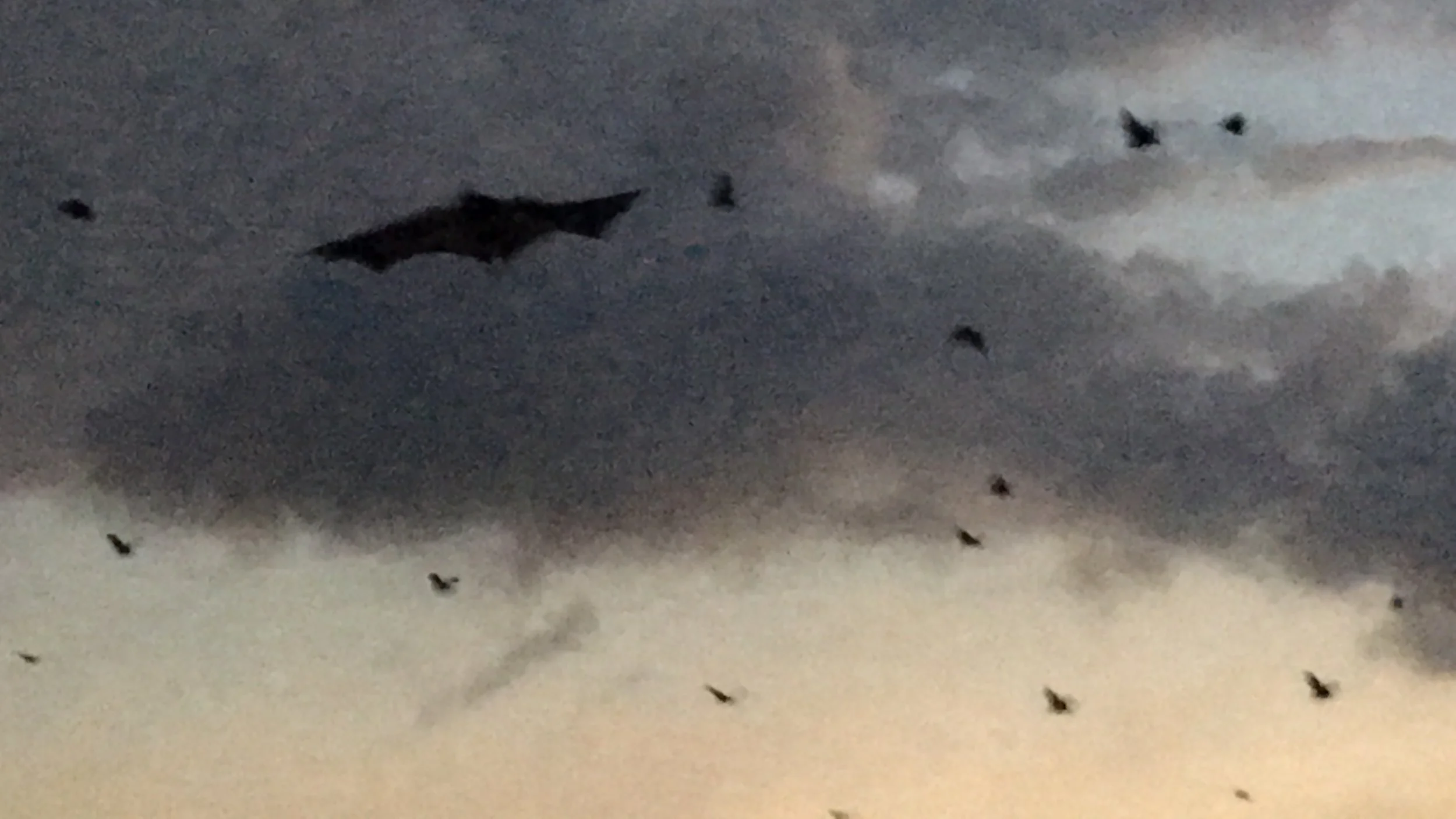Voodoo Bats
By Michael H. Kew
Wind shook the garden. A lull in rain. Briefly, we sweat beneath equatorial sun.
Mkubwa showed me more plants that could treat cholera, diabetes, hypertension, asthma, insect bites, constipation, diarrhea, flatulence, insomnia, heart disease, nausea, blindness, toenail fungus, arthritis, erectile dysfunction, sore throat, warts, vomiting.
“Anything for hangovers?” I asked.
Mkubwa’s young brother hacked some sugar cane and handed it to me. I chewed a while.
“Here in our village,” Mkubwa said, “we have special doctor. If you use special doctor, you have to believe in him—to believe he can fix you. You have to get some magic from your religion. It is in the mind.”
With a wet, sugar-sticked finger, he tapped the left side of his bald head.
“Your brother is a doctor?” I asked.
Mkubwa laughed. His “special doctor” was an old man—a shaman. Pemba was known for such sorcerers and subjective wizardry embraced by most Tanzanians. Pemba’s witch doctors—waganga in Swahili—had visitors from across Africa and even Haiti, internationally known for its voodoo. Waganga could dose good luck, kill curses, cast spells, cure illness. Ultimately, witchcraft proved iffy as many Pembans, still sick, had tried waganga first crutch.
Sucking on sugar, I looked up. Northbound rain smeared the sky.
A shy man named Shoaib motorbiked me back to Wete. It was Friday—worshippers prowled the streets. Men would gather for a congregational prayer called ṣalāt al-jumu’ah (Friday prayer), supplanting the usual ṣalāt aẓ-ẓuhr (noon prayer).
Back at Ismail’s guesthouse, where the power was out, Shoaib asked me if I wanted to “drink many beers” with him at Wete’s police station.
“Police bar.” He grinned.
Though I shouldn’t have, I declined, citing the premise of getting illegally drunk with African cops, followed by a dangerous ride home in rainy darkness, plus my wish to wake early and fresh the next day for my return to Seattle via Dar es Salaam.
Late afternoon, amid another lull, I walked from Ismail’s in search of dinner: green oranges, boiled peanuts, stale cassava chips. At one vendor, because I was white, a belligerent first demanded my bills, then the coins I received as change. The vendor hissed and shooed him away. It was a busy lane, full of otherwise nice folks at their fruit stands and trays of flyblown fish.
Alone on Ismail’s dim rooftop patio, I ate slowly. Through a gap in the mango trees, I watched fishermen tend dhows in dense, sheeting rain. It was 5:15 p.m. Behind me, from the echoey stairwell, Ismail made a cameo. He was headed to his mosque for ṣalāt al-maġrib (sunset prayer).
“Be here at 6:45,” he said. “They will be ready!”
Ismail.
Dog-faced Pemba flying foxes were Africa’s biggest fruit bats, weighing more than a pound, wingspans to 30 inches. Of black and bright ruddy fur, by day they roosted, inverted in large groups. By night they foraged—figs, mangoes, papayas, tree blossoms, nectar, pollen, leaves. Ecologically the bats were crucial for pollination and seed dispersal. After decades of hunting, reports in the 1990s suggested the bats risked extinction and hence were considered endangered by the International Union for Conservation of Nature. Since then, the bats’ population boomed from 200 to 20,000.
Through a distant dusk slinked voodoo drumming and Swahili sing-song. Near my ears were loud crickets. The bright moon rose in the eastern sky and brushed it into a rich pastel of blues and orangey pinks.
Six:47 p.m. From the stairwell, Ismail appeared.
“See, Michael? Right on time!”
The bats looked primordial, hundreds of wings flapping north.
“When I was young, many mango trees here,” Ismail said, looking pleased, watching the bats as he did most evenings. “But now they are cut for make rice fields. Rice is nice, yeah? Everyone loves rice.”
As darkness gathered, there came a sweep of cricket-buzz psychedelic charm, the silhouettes of dhows anchored in the lagoon, the islands to the far west, the mango trees, the bats against the fibrillated gray, the clouds pressed into crimson sky.
“The bats sleep on the day and they wake up on this time,” Ismail said. “At 6:45 every night, they are going north, flying back at 5:30 the next morning.”
“What if one falls from a tree?”
“People will go and take it. Sometimes the bats are sleeping on a branch and the branch will break, so they all fall down and hit their heads and die. People will come and take all of them for eating. Taste like chicken!”
He grinned and pointed up.
“Look. They finished now.”
Chuckling softly, as he often did, Ismail felt his way slowly, blindly, back down the stairs. The power was still out—no lights anywhere in Wete. Ceding to the esotericism and obscurantism of Pemba, I leaned back—ears pinged with cricket chirp, eyes with the flood of darkness, mind with what might lay on the other side.
Batty full moon, Pemba. Photos: Kew.
Pemba coast.


